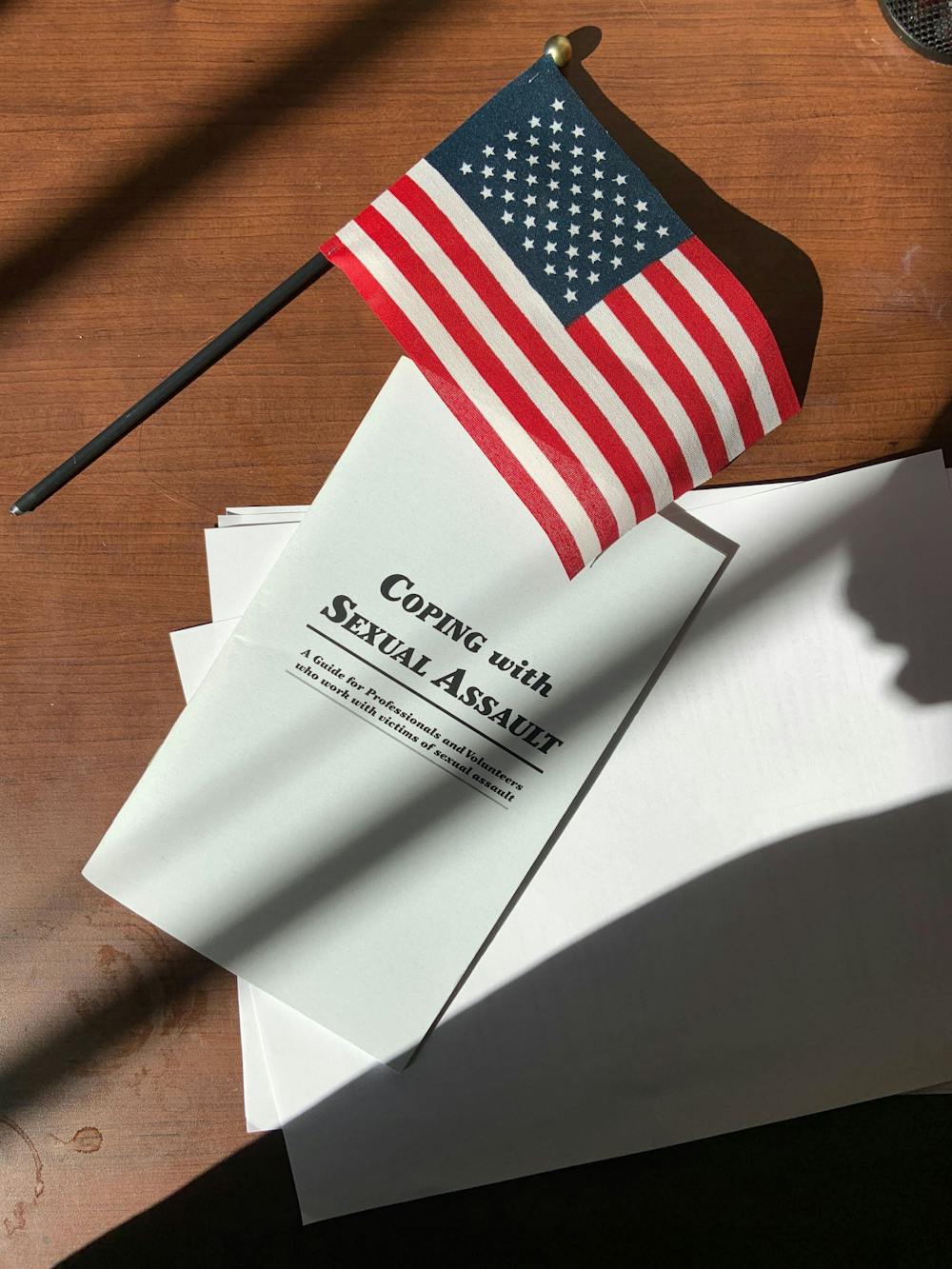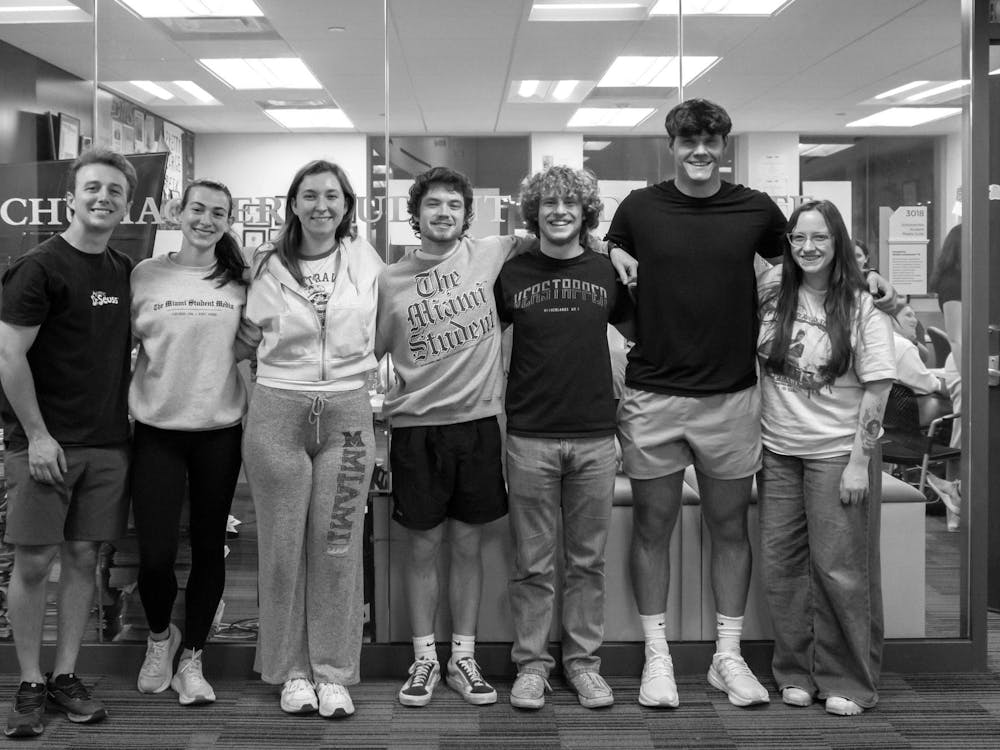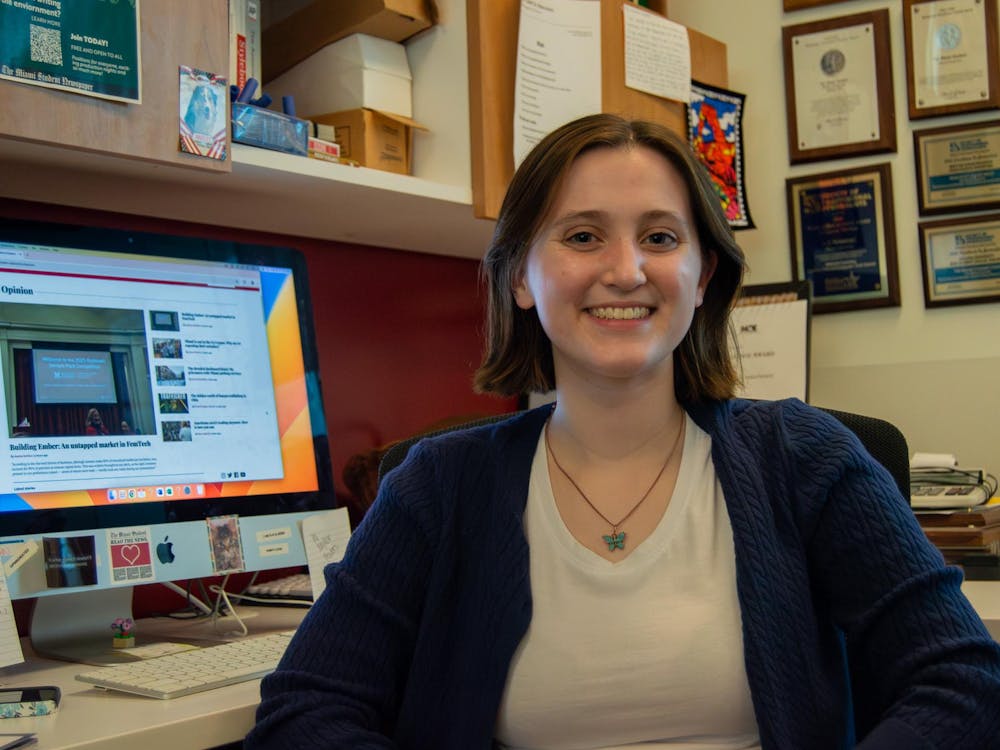Within the confines of academia, where tenets of fairness, integrity and justice should flourish, the Office of Community Standards (OCS) at Miami University finds itself at the center of a contentious debate. Trusted with the responsibility of addressing alleged violations of the student code of conduct, including cases of Title IX and sexual misconduct, the OCS plays a pivotal role in the university's assessment of culpability and imposition of sanctions.
We need better advocacy for the rehabilitation of a system that is intended to uphold the values of love and honor, yet in its current form leaves survivors of sexual and interpersonal violence feeling unsupported, unheard, disheartened and regretting having sought justice in the first place.
At Miami, any faculty or staff member can become a part of the board within OCS and gain the responsibility of adjudicating cases of alleged violations of the student code of conduct, if they participate in the training regimen. The problem is that OCS training sessions occur at a bare minimum frequency, often just once a year.
Given the gravity of the decisions they make, especially in cases of alleged sexual and interpersonal violence, members should be required to obtain a more substantial level of expertise and have a genuine desire to gain knowledge. Mandated training is designed to familiarize members with the operations at Miami, the grievance process and relevant terminology. It teaches how to be impartial.
A determination of culpability is made by the board members after an investigation, hearing and opportunity to appeal the decision have all occurred. In its entirety, the process is around six months long. The final determination of responsibility is made using the “preponderance of evidence” standard.
The alleged perpetrator is assumed innocent from the beginning, which means the complainant (alleged victim) has to prove it is more likely than not that their version of events is true.
There are notable deficiencies in the current training regimen and plenty of room for improvement. For instance, board members are advised to "be sensitive to potential trauma experienced by witnesses." This guidance is not thorough enough to treat victims justly and properly.
To rectify this, I propose establishing a feedback mechanism that would allow survivors, and others involved in the process, to provide input regarding their experiences. By doing so, the system could undergo continual review and refinement.
Furthermore, the training instructs members to consider marginalized groups such as people of color, LGBTQ+ identities and disabled people. Ironically, during hours of reviewing training materials, I found no reference to any marginalized group. To genuinely consider these traits, board members should be required to undergo comprehensive training regarding disability, diversity, equity and inclusion.
What saddened me the most when looking at the process was the glaring absence of training regarding the profound impact of sexual and interpersonal violence. Without any understanding of how trauma can affect memory and behavior, members are ill-equipped to assess the credibility of individuals who allege such experiences.
Miami must introduce and require additional training that adopts a trauma-informed approach, teaching how to engage with victims respectfully and minimize the risk of triggering distressing memories.
The 2021 training materials prompt the members to ask questions like, “If a fact was very important, why is the hearing the first time it has come up? Has the witness’s perspective or motive changed between statements?” These questions are valid, but board members should be taught not to phrase questions in such a manner to avoid victim blaming.
Enjoy what you're reading?
Signup for our newsletter
Because their training regarding sensitivity is practically nonexistent, the board members involved in my hearing had no issue with framing questions in this manner for the nearly three hours I was interviewed and cross-examined.
Don't worry, after my testimony they blessed me with a three-minute break before expecting me to be comfortable enough to resume.
Repetition is an effective method for teaching things like definitions, but simply reiterating the need for members to be neutral and not let unconscious biases influence their interpretation doesn't do anything to measure the extent to which these biases exist. Board members should undergo Implicit Association Tests (IAT) semi-annually to identify and confront their biases.
Another vital change is to diversify the composition of the decision-maker team. In my case, everybody involved had pursued law school, nearly everyone was white, and it was primarily older men.
Employees from The Miller Center for Student Disability Services should be offered the opportunity to become board members to gain a wider range of perspectives and contribute to more equitable and inclusive judgments.
As a survivor who embarked on the daunting journey of seeking justice through the Title IX and legal systems, certain realizations became painfully clear. The current systems in place were not designed to assist survivors or uncover the truth. Our institution fails to provide accurate, evidence-based guidance to students navigating the Title IX system, and the faculty members entrusted with making vital resources accessible appear to be indifferent to their roles.
It is unjust to expect us to uphold the values of love and honor when our university appears disinterested in doing the same.
Pixie Menezes is a second-year student studying medical laboratory sciences with a minor in social justice. She has a passion for science, art, music, and self-growth. She is involved in multiple activism and diversity-related organizations on campus and in her home city of Columbus.




